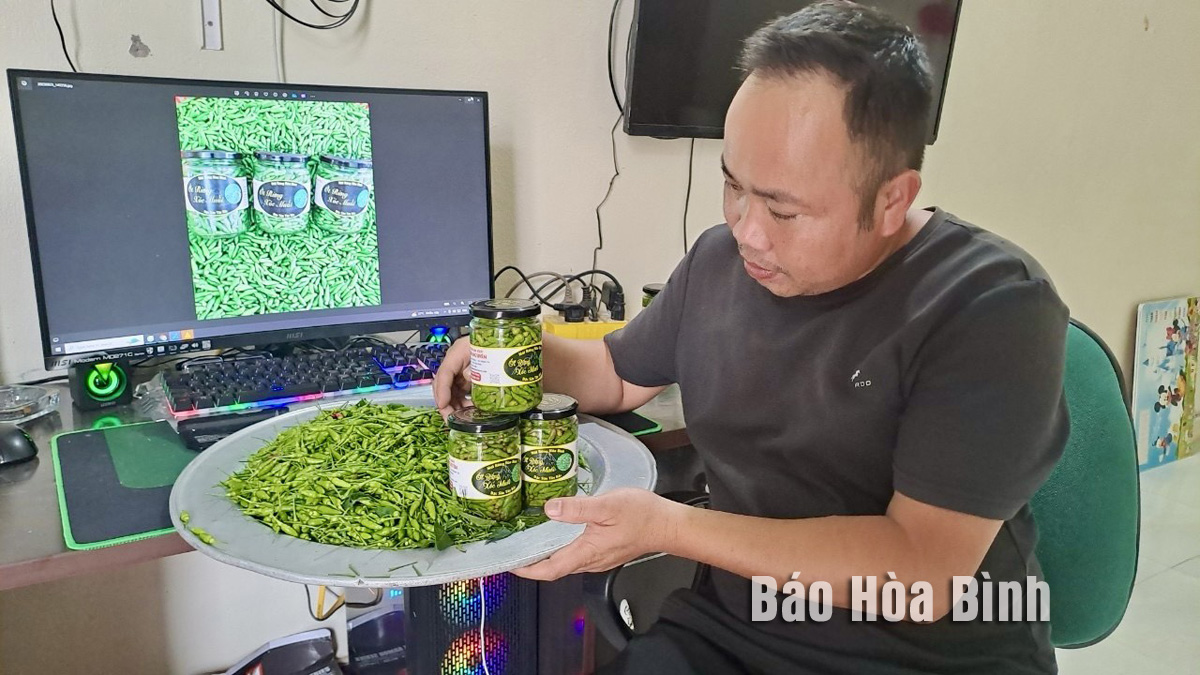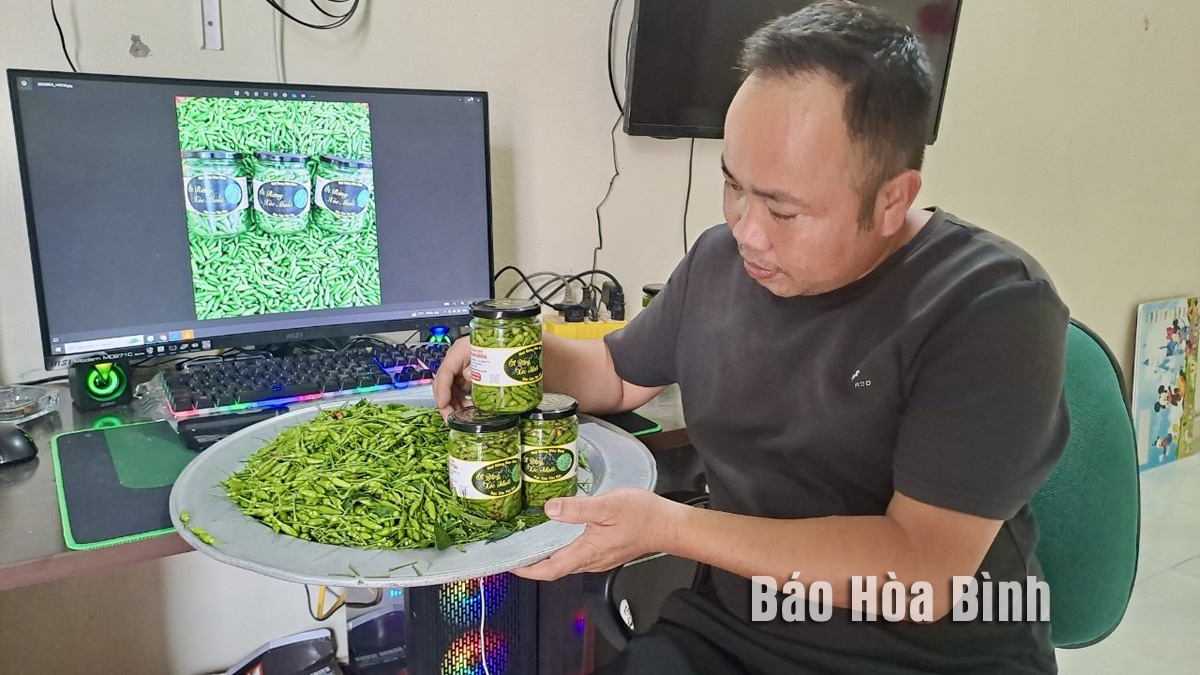
Bui Hai Nguyen, a young farmer in Lien Hong 1 village, Khoan Du commune, Lac Thuy district, has made a good example of youth startup as he takes advantage of e-commerce to promote local chili.
Bui Hai Nguyen introduces products on social networks.
Nguyen’s family has for years earned their living by growing
acacia. However, they earned little because they only grew the trees, harvested
wood and then sold them to factories. Seeing his parents' hardships, Nguyen was determined to thrive
right in his homeland.
In the last few years, seeing the boom of
onlineshopppingvia social networks and e-commerce platforms, Nguyen
created accounts and became a seller on TikTok and Shoppee. He said thatthrough channels like TikTok, Facebook or
Shoppee, many young people across the country have promoted their
localspecialties.
Nguyen said that he now sells saltedchilionline and
that he has received positive feedback from consumers. He sells about 1,000 jars ofchilimonthly,
getting a revenue of about 70 - 75 million VND (2,750- 2,950 USD) per month. He used to buychilifrom other farmers at a price
of110,000 –150,000VNDper kilo and then sell it online. Now, he growschilito save costs and ensure raw
material supply.
He chose a mountainouschilivariety with fruit that
is small and more fragrant and spicy than others.
He grows chiliathis family’s acacia-growing area.
Thechiligrows well thanks to the suitable climate and soil
conditions.
After being harvested, thechiliis washed and
processed in the traditional way that the Muong people do, thus, his products
have a special flavour that attracts customers. Nguyen said that besides ensuring product quality, marketing is
very important so that customers can know about products.
In the coming time, he will learn more about e-commerce,
particularly how to livestream to promote products to more customers. He is
also planning to develop brands for his products and make them meet the
criteria of One Commune-One Product (OCOP) products.
Tran Thi Hai, Deputy Secretary of Lac Thuy district’s Ho Chi
Minh Communist Youth Union, said that Nguyen's startup model inspires other
youth in the locality. The union will continue to boost communication activities and
create favourable conditions to encourage youth to join patriotic emulation
movements and start-up.
According to data from the Hoa Binh Provincial Party Committee, the industrial production index for the first six months of 2025 is estimated to have increased by 20% compared to the same period last year. This marks the highest year-on-year growth rate for this period since 2020.
In the first six months of 2025, Hoa Binh province’s export turnover was estimated at 1.145 billion USD, marking an 18.11% increase compared to the same period in 2024. Import turnover was estimated at $ 804 million, a 17.15% increase, which helped the province maintain a positive trade balance.
The lives of the ethnic minority farmers in Tan Lac district have gradually improved thanks to the new directions in agricultural production. This is a testament to the collective strength fostered through the professional associations and groups implemented by various levels of the district’s Farmers’ Union.
With the motto the "product quality comes first,” after nearly one year of establishment and operation, Muong village’s Clean Food Agricultural and Commercial Cooperative, located in Cau Hamlet, Hung Son Commune (Kim Boi district), has launched reputable, high-quality agricultural products to the market that are well-received by consumers. The products such as Muong village’s pork sausage, salt-cured chicken, and salt-cured pork hocks have gradually carved out a place in the market and they are on the path to obtaining the OCOP certification.
In the past, the phrase "bumper harvest, rock-bottom prices" was a familiar refrain for Vietnamese farmers engaged in fragmented, small-scale agriculture. But today, a new spirit is emerging across rural areas of Hoa Binh province - one of collaboration, organisation, and collective economic models that provide a stable foundation for production.
Maintaining growing area codes and packing facility codes in accordance with regulations is a mandatory requirement for agricultural products to be eligible for export. Recently, the Department of Agriculture and Environment of Hoa Binh province has intensified technical supervision of designated farming areas and packing facilities to safeguard the "green passport" that enables its products to access international markets.



